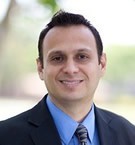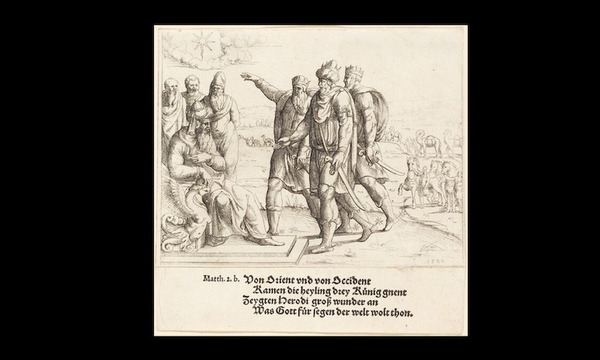This post is also available in Spanish.
This week when visiting a store with my family, I was shocked to see a sideboard with next year's planners when there are still several months to go before this singular and extraordinary year ends. If we have been learning anything this year, it is to see that our plans and desires, however good and attractive they may seem, can change in an instant and that our agendas can be filled with good intentions, but not with realities. Now all of our plans are tentative and subject to change beyond our control.
Perhaps one of the reasons we get so frustrated when our plans are truncated is because they are generally focused on ourselves. Planners organize our activities and we all have an idea of what we would like to do with our time. Obviously, it is not wrong to organize our tasks and plan our calendar, but when the focus of our lives is on us, it is easy to lose sight of others and be flexible.
Three years ago, I had the pleasure of participating in a theological education conference in Lima, Peru. One day when I was walking through the center of the city and visiting the National Library, I was struck by a phrase inscribed on one of its walls: “Knowledge and riches are alike, they only flourish when they are used to serve others.” Remembering this phrase recently has made me reflect on how important it is to live for others. Knowledge and material goods are only valuable when used for the benefit of others. A selfish person is never truly happy or has a full life, even if his plans are carried out perfectly.
I am a professor in the research doctoral program at Talbot. Students are adults who seek to obtain their doctorate to serve as professors or leaders of different institutions or ministries. Although the process of earning an academic degree is an individual exercise, the emphasis does not have to be. In fact, a former senior colleague popularized the phrase “doctors of the Church” to remind students that their studies should serve the church and not just themselves. Bernard de Clairvaux rightly shows us the difference that makes the focus of our learning:
“Some seek knowledge for the sake of knowledge: This is curiosity; Others seek knowledge so that they themselves may be known: That is vanity; But there are still others who seek knowledge in order to serve and edify others: And that is charity.”
The reality is that there are two types of people in this world. Those who live for themselves and those who live for others. All followers of Jesus have been called to live for Christ and in this way for others. 2 Corinthians 5:15 reminds us of the main purpose of our lives:
“and He [Christ] died for all, so that they who live might no longer live for themselves, but for Him who died and rose again on their behalf.” Jesus gave His life for us so that now we can live for Him in order to truly enjoy the fullness (Shalom) of God. Living for Christ means obeying him and loving others in the same way that Christ loves them. In other words, it means living focused on Christ and our neighbor instead of ourselves.
In these uncertain times I invite you to change your perspective on life. It is normal to be frustrated by the lack of security in our plans. We all wish for better times, but right now we can look for ways to put others as a priority on our agendas. Our Lord, who died for us, calls us to live for Him and for others. What better opportunity to do so than right now!
 Biola University
Biola University

.jpg)

.jpg)
